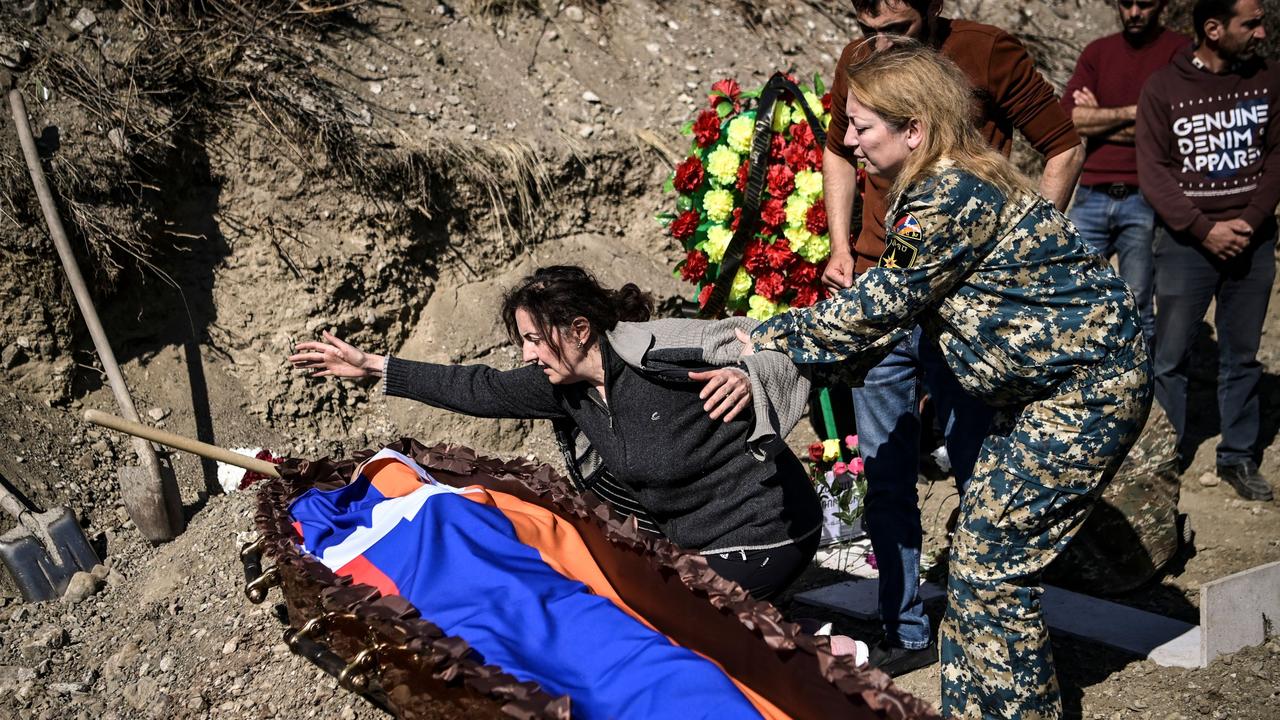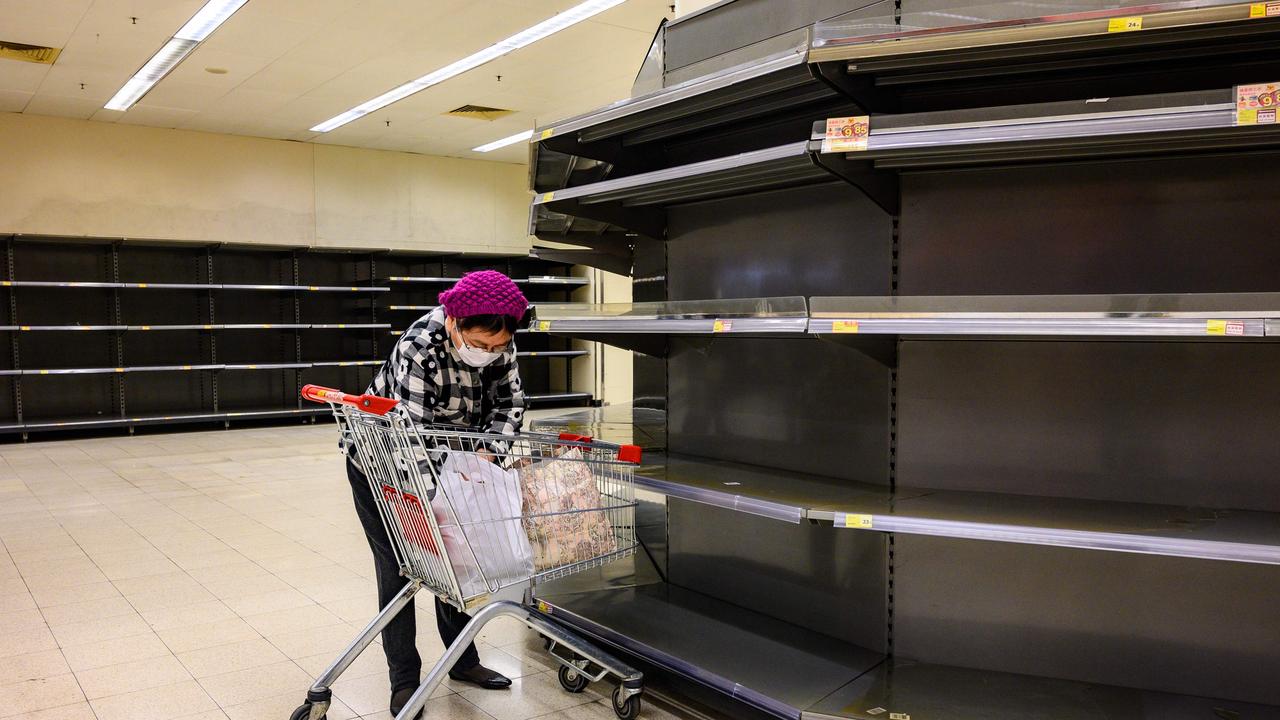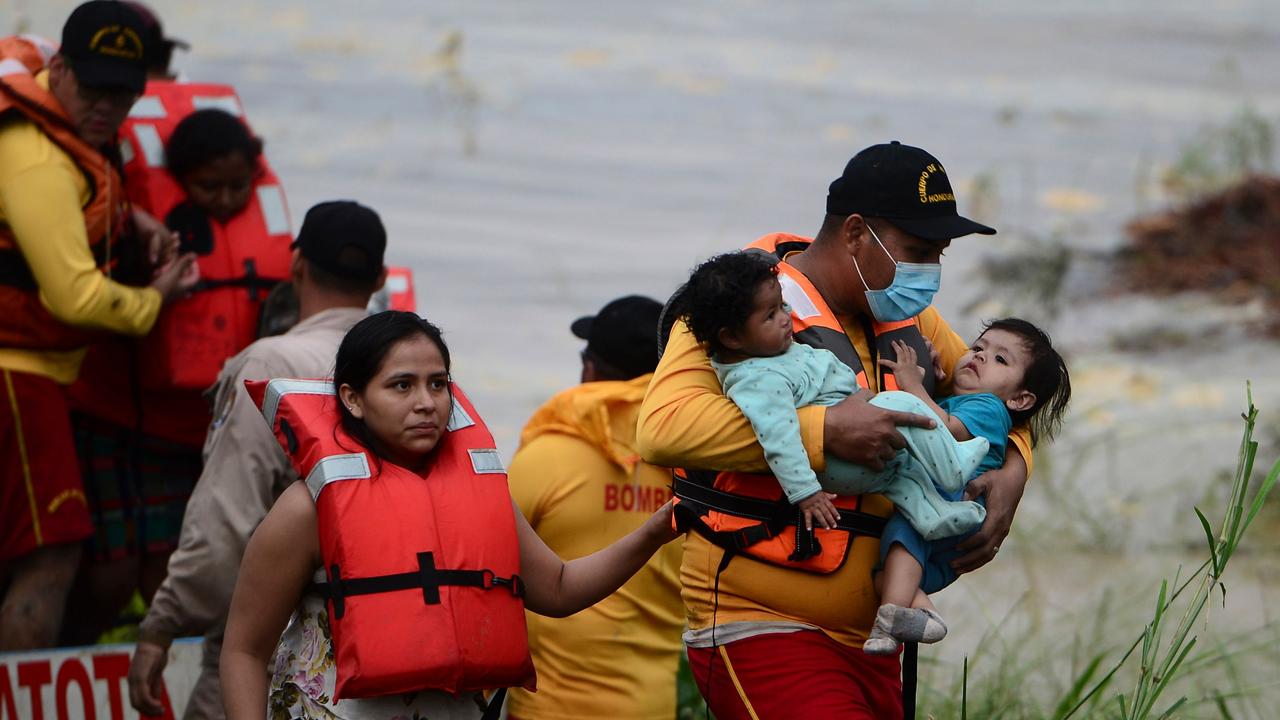UN warns that 2021 could be catastrophic due to COVID-19 fallout and famine
The end of 2020 will be welcomed but an expert has warned that 2021 is “literally going to be catastrophic”. A new problem is about to hit – and hard.
Misery loves company. In the case of COVID-19, that company includes unemployment, economic turmoil – and famine. And they’re about to come knocking.
“2021 is literally going to be catastrophic based on what we’re seeing at this stage of the game,” said World Food Programme (WFP) chief David Beasley at the United Nations General Assembly on Friday.
Global famine is “knocking on the door”, he warns.
RELATED: America is at breaking point

And if you think Australia won’t be affected by all this, think again.
The warning signs are already there.
Notice how scarce out-of-season foods have become on supermarket shelves? Many vegetables and fruits must come from overseas. International trade has been disrupted and Australia’s ability to exploit cheap international labour has also been choked. This leaves many of our crops at risk of rotting in the fields.
The situation, however, is much more dire in Africa and South America. And that could trigger a global shortages and economic shockwaves.
Beasley says 2021 would likely be “the worst humanitarian crisis year since the beginning of the United Nations ... As I say, the icebergs in front of the Titanic.”
COVID CARNAGE
Beasley was supporting an appeal for $US35 billion in aid funding to meet a 40 per cent spike in the number of people needing humanitarian assistance.
“We’re not going to be able to fund everything ... so we have to prioritise,” he said.
The impending “carnage” was “almost entirely from COVID-19,” UN emergency relief chief Mark Lowcock added.
RELATED: Extreme new crisis threatening 2021

It was the straw that broke the proverbial camel’s back for people already reeling from conflict, social upheaval and climate change shocks. As a result, he said, “multiple” famines are looming.
“The picture we are presenting is the bleakest and darkest perspective on humanitarian needs in the period ahead that we have ever set out. That is a reflection of the fact that the COVID pandemic has wreaked carnage across the whole of the most fragile and vulnerable countries on the planet,” Lowcock said.
The UN Office for the Coordination of Humanitarian Affairs predicts a record 235 million people will need humanitarian assistance and protection next year. This year, that figure was 170 million.
Lowcock warns that the “obscene” chance of global famine in 2021 would inevitably lead to war and civil unrest.
UN Secretary-General António Guterres urged the world to “stand with people in their darkest hour of need”.
COVID had produced “new spikes of conflict in places that were previously more peaceful. We’ve seen that obviously recently in Nagorno-Karabakh, we’ve seen it in northern Mozambique, we’ve seen it in the Western Sahara and at the moment obviously, tragically, we’re seeing in northern Ethiopia,” he said.
“We’re overwhelmed with problems.”
RELATED: When Australia will get the vaccine

DEAD WEIGHT
The global economy is in crisis. And Australia can’t escape that.
Australia is in an ideal position for recovery, says ANU Crawford School of Public Policy researcher Peter Martin. That’s thanks to a rational pandemic response and the success of the JobKeeper program, he adds.
But the world is still dragging Australia down with it.
As such, Australia has seen “the fourth consecutive quarterly fall in export income (something set to worsen unless relations with China improve) and the sixth consecutive fall in business investment,” says Martin. “In a quarter when consumer spending recovered, non-mining business investment fell a further 3 per cent on top of a fall of 8.6 per cent in the previous quarter.”
Now, worried Australians are saving double what they used to. That means those who have a reliable income are spending less. And that means increased pressures on jobs and profits.
“Now, Europe’s economy is expected to sink again in the December quarter as member states struggle to contain the virus,” Martin says. Australia is on a different path, but there was “no guarantee we will remain so”.
FOOD FIGHT

Fire. Drought. Flood. All are stressing crops and orchards from China to South America.
One obvious sign of growing food stress is the way China’s fishing fleets are ranging far afield. But that’s just the most blatant indicator of ocean fish stock stress.
Overfishing is also a problem for Australia. And that can be seen in prices, and reliability of supply.

“For example, research in 2018 showed large fish species were rapidly declining around the nation due to excessive fishing pressure. In areas open to fishing, exploited populations fell by an average of 33 per cent in the decade to 2015,” a recent analysis of the struggling Pacific fishing industry finds.
“The collapse of fisheries around the world shows just how vulnerable our marine life is. It’s clear that humans are exploiting the oceans beyond sustainable levels. Billions of people rely on seafood for protein and their livelihoods. But by allowing overfishing to continue, we harm not just the oceans, but ourselves.”
CLIMATE CATASTROPHE
“The state of the planet is broken,” UN Secretary-General António Guterres warns. “This is suicidal.”
He was emphasising the implications of 2020 being one of the three warmest years on record. It was only half a degree from the “limit” imposed by the Paris Climate Accord. And that temperature boundary is likely to be breached by 2024.
“Apocalyptic fires and floods, cyclones and hurricanes are increasingly the new normal,” he said.
The social and economic consequences can already be seen across the world, he said. But it’s the disasters that are grabbing the headlines.
“In 2020, over 50 million people have been doubly hit: by climate-related disasters (floods, droughts and storms) and the COVID-19 pandemic,” a World Meteorological Organisation report states. Countries in Central America are suffering from the triple-impact of hurricanes Eta and Iota, COVID-19 and pre-existing humanitarian crises.

Australia has experienced extreme bushfires. But so has California. And Siberia. And Indonesia. And Brazil. And Argentina.
Then there’s the record 13 Atlantic hurricanes. Their potential for devastation is immense and growing.
Amid it all, the Arctic has recorded new record lows for sea ice. And Antarctica’s glaciers are accelerating their slide into the oceans.
“Climate fluctuations that used to take millennia are now occurring in less than 100 years, affecting freshwater availability, food supply, health, and environmental integrity,” argue Flinders University biodiversity researchers Frederik Saltre and Corey Bradshaw.
“Past climate changes set the stage for people to demonstrate immense adaptability and resilience by developing new skills, farming techniques, trading patterns and political structures, but most importantly by leaving their old, unsustainable ways of life behind.”
Put simply; it took immense disruption.
SILVER LINING
“Progress on vaccines gives us all a lift, and we can now start to see the light at the end of the tunnel,” Mr Tedros told the world assembly. “However, WHO is concerned that there is a growing perception that the COVID-19 pandemic is over.”
WHO emergency response expert Mike Ryan says complacency presents a real risk.
“Vaccines do not equal zero COVID,” he said.
“We are in a pivotal moment in some countries. There are health systems in some countries at the point of collapse,” he said. Inevitably, this would have a systemic impact on economic production and distribution – including food.
Mr Tedros called for an injection of $US4.3 billion into a world vaccine sharing effort, warning of international chaos if the process devolves into a “stampede”.
“This is a global crisis, and the solutions must be shared equitably as global public goods.”
Jamie Seidel is a freelance writer | @JamieSeidel




